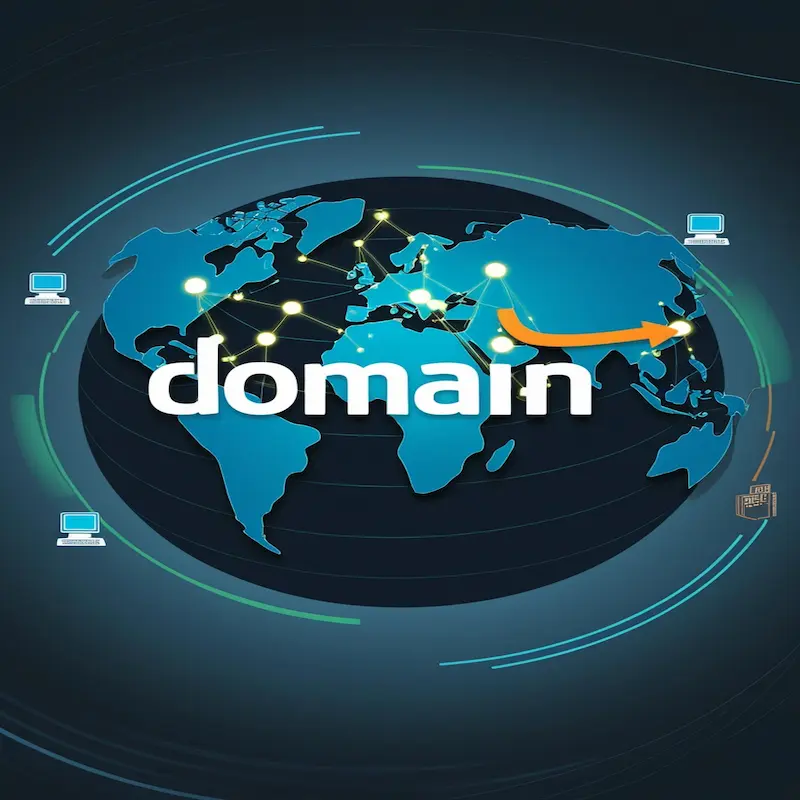What Is a Domain in a Website? (And Why You Should Care)

Let’s be honest. You’ve probably typed a million domains into your browser without ever wondering what they actually are. Google.com? A domain. Netflix.com? Yep, domain. Your best friend’s embarrassing blog from 2008? Sadly, also a domain.
But what is a domain? And more importantly—why does it matter if you’re starting a website, launching a side hustle, or just trying to impress your friends over brunch?
Let’s break it down in the most un-techy, human way possible.
Think of a Domain Like Your Home Address
Imagine the internet is a huge city (chaotic, noisy, full of memes). Your website? It’s your house. Now, how would people find it?
They need your address. That’s your domain name.
So when someone types www.yourawesomebrand.com into their browser, they’re essentially pulling up to your digital front door and knocking. No domain = no directions = no visitors = sad website.
Okay Cool, But What Exactly Is a Domain?
In plain English:
A domain is the human-readable name that identifies a website on the internet. It’s what you type into the browser’s address bar to visit a site.
Technically, it translates into an IP address (a series of numbers like 192.168.1.1), but let’s be honest, you’re not about to remember that. That’s why domains exist—they’re a friendly alias for all those cold, robotic digits.
Quick Breakdown:
| Term | What It Means |
|---|---|
example.com |
Domain name |
www.example.com |
Subdomain + domain |
.com, .net, etc. |
Top-Level Domain (TLD) |
example |
Second-Level Domain (SLD), aka your custom name |
Why Do Domains Matter (A Lot)?
Let’s say you’re building a brand, a blog, or an e-commerce site for selling your hand-poured vegan candles (because of course you are). Your domain is your first impression. It’s what people see on business cards, in your Insta bio, or on a billboard.
Here’s why you should really care:
-
Brand identity: A strong domain = strong presence. Think: Nike.com.
-
Trust & credibility: People trust
.commore thanweird-link.biz123. -
SEO benefits: A clean domain can help with Google ranking (yes, Google notices).
-
Easy access: It’s easier to say “Check out LunaSocks.com” than “Search for my Etsy page—it’s the third one down, maybe.”
Wait, So What’s the Difference Between a Domain and a Website?
Good question. Here’s a metaphor:
-
Domain = your home address
-
Website = your actual house, furniture, weird cat posters included
-
Hosting = the land your house is built on
You can own a domain and not have a website yet. Just like you can own land without building on it. But if you want your digital space to exist and thrive online, you need both the domain and hosting.
Which is best for website hosting?
Types of Domains: Not All Are Created Equal
There are different types of domains depending on what you’re building. Let’s break it down without getting all nerdy about it:
1. Top-Level Domains (TLDs)
These are the fancy endings like .com, .org, .net, or even .pizza (yes, that’s real).
-
.com: Most common, best for businesses and brands -
.org: Usually for nonprofits or organizations -
.edu: Educational institutions -
.io,.ai: Popular with startups and tech companies -
.me,.xyz,.fun: For the rebels and creatives
2. Country Code TLDs (ccTLDs)
Like .us, .uk, or .ca. These show the geographic identity of a website.
3. Subdomains
These are add-ons that help organize your content. Think: blog.yoursite.com or shop.yoursite.com.
How Do You Get a Domain?
Honestly? It’s easier than making avocado toast.
Step-by-Step:
-
Pick your name: Something short, catchy, and relevant.
-
Check if it’s available: Use sites like Namecheap or GoDaddy.
-
Buy it: Prices vary, but
.comdomains are usually $10–15/year. -
Connect it to hosting: So your website actually shows up when people type your domain.
Pro tip: Buy your domain before someone else snatches it. Domain squatters are real and annoying.
FAQs (Because You’re Definitely Wondering…)
Is a domain the same as a URL?
Not exactly. A URL (Uniform Resource Locator) includes the domain plus extra stuff like the page, folder, or file. Like https://example.com/about.
Can I own multiple domains?
Absolutely. Many brands buy several to protect their name—like brand.com, brand.net, and misspellings like brnad.com.
Do I need hosting with my domain?
Yes, if you want a live website. Think of hosting as the land your website lives on. Without it, your domain is just a name tag with no face.
Can I change my domain later?
Technically yes, but it’s a pain. You risk confusing visitors, breaking links, and hurting your SEO. So choose wisely.
Wrapping It All Up
So, what’s a domain in a website?
It’s your digital identity, your brand’s address, and your first impression online. Whether you’re starting a business, a blog, or just finally taking your side hustle seriously—your domain is step one.
Choose wisely. Keep it clean. Make it yours.
Got questions? Thinking of registering your first domain? I’d love to hear about your ideas—drop a comment